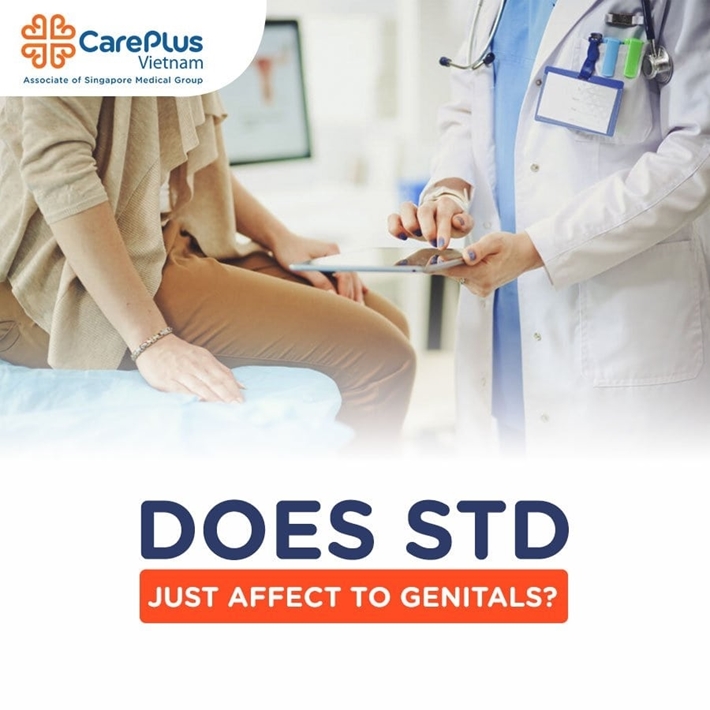Does STDs just affect to genitals?

12/14/2021 10:53:02 PM
1. What is a sexually transmitted disease (STD)?
Sexually transmitted diseases (also known as STDs) are a group of diseases that are transmitted from one person to another through sexual activities, including vaginal, oral, or oral sex.
STDs do not always show symptoms or may have only mild symptoms. As a result, many people get sick without even knowing they have it. That is why it is advisable to screen for this group of diseases in sexually active and at-risk people.
Common STDs: Chlamydia, Gonorrhea, Hepatitis B, C, Genital Herpes, HIV, Genital Warts (Candis), Syphilis, Trichomonas vaginitis
2. Does STD only affect the genitals?
STDs affect not only the genitals but also affect the genital area, for example in the following cases:
- Chicken color measles: When the patient has a genital contact in any part, it will cause disease in that area. For example, if a patient has a genital contact in the oropharynx, mouth, and anus, it will cause disease in those areas.
- Syphilis causes symptoms in the genital area and then into the bloodstream, which can cause a skin rash - easy to confuse with other skin conditions.
- HPV or Hepatitis B–there is a mode of STDs but the target organ of damage is the liver and the immune system on white blood cells.
💥Effect of STDs in the Covid-19 epidemic
Characterized by sexual contact, social distancing partly increases the incidence of the disease. However, those who have been infected before the gap occurs or have been diagnosed, treated before and have to prolong treatment will have difficulties in accessing medical facilities, treatment, teSTDng and treatment, monitoring.
Therefore, on the surface, the incidence is reduced. However, deep down there are many cases of the disease that have not been tested or those who have failed treatment cannot change the treatment method is different. This is the result that pathogens STDll exist in the community and can cause outbreaks of sources of infection when the community returns to normal life.
----
For early and periodic screening of STDs for timely diagnosis and treatment, Register:
Follow the Series of Q&A about STDs to get detailed advice from doctors on questions about social diseases HERE